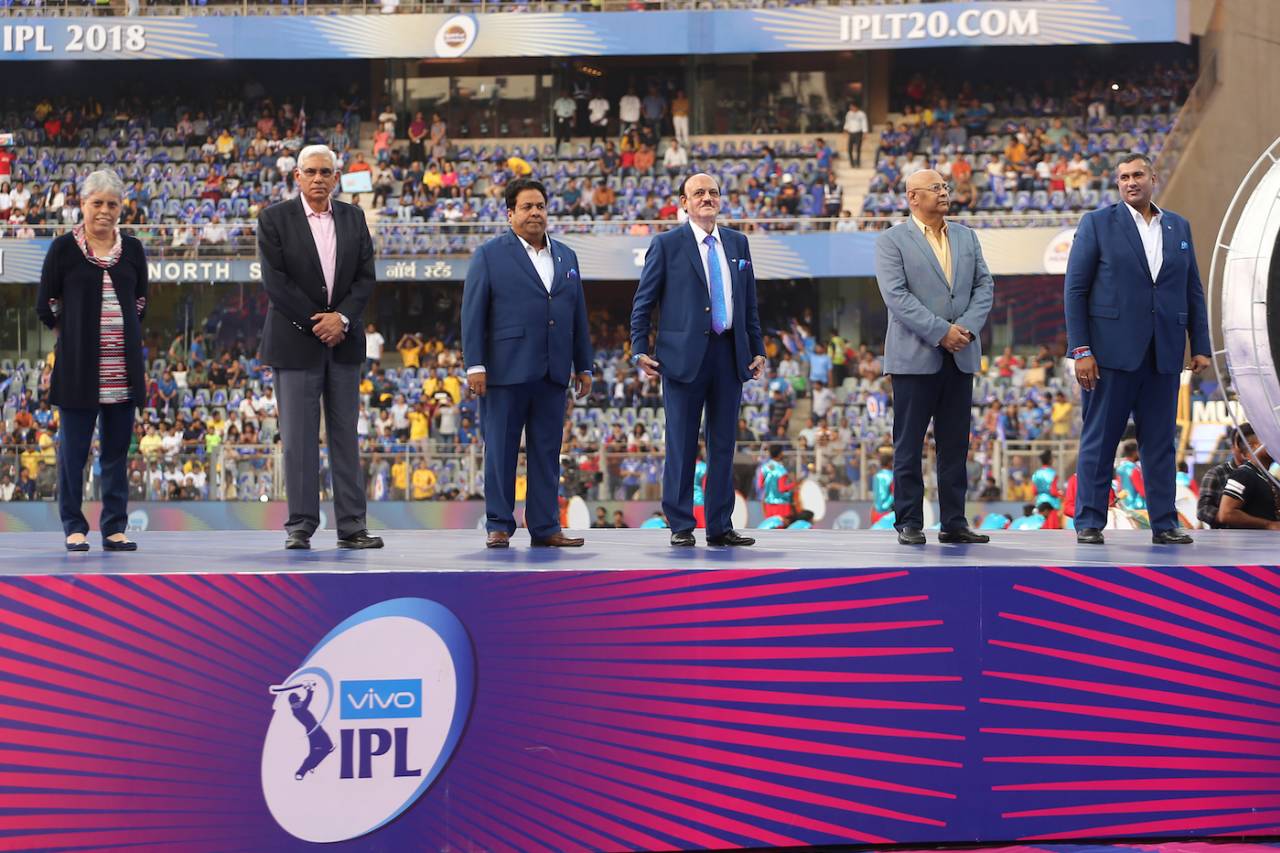Twelve state associations of the BCCI have informed the Supreme Court that they are ready to implement the Lodha Committee reforms barring four exceptions, the board's acting secretary Amitabh Choudhary said a day before a fresh Supreme Court hearing.
The Tamil Nadu Cricket Association, which is believed to be against the reforms, is not among the 12 that have agreed to implement them. Maharashtra is the 13th association to have agreed, but because it has run into legal trouble lately, Choudhary didn't count it. According to the BCCI constitution, a three-fourths majority is required for the reforms to be implemented.
The Supreme Court had asked the BCCI office bearers - who had given an undertaking they would ensure the reforms were implemented - to submit their suggestions regarding difficulties in implementing the reforms. The four points the 12 associations found difficult to implement were 'one state, one vote', the three year cooling-off period after a term, the constitution of the all-powerful apex council, and the distribution of power and functions between elected representatives of the board and its professional wing.
The most significant suggestion put forward by these 12 states is for the board to have six representatives in the apex council as opposed to the one suggested in the Lodha reforms. "The apex council as presently contemplated has three office bearers, which will go up to five," Choudhary said. "There will be one who represents the board, which will be 37 members, and two for players. Insofar as the board is related, the country is very, very large, therefore my submission is that each zone including a separate zone from northeast, so six representatives."
The implementation of 'one state, one vote' and the cooling-off period "doesn't seem practical" to these 12 associations. The argument against 'one state, one vote' has been made in the past, and revolves around the role played by the traditional associations such as Mumbai, Baroda, Saurashtra in big states. They are against the cooling-off period because, according to them, if the two other restrictions - an age cap of 70 years and a total cumulative tenure of nine years - of an official's tenure are implemented successfully, "the further restraint becomes unnecessary".
"Besides this, you have to contemplate the situation that the office bearers run for three years, then totally new faces come up," Choudhary said. "That will mean no continuity."
Regarding the exception to the strength of the national selection committee - three now as opposed to five earlier - the 12 states are happy to comply given the team has managed with three for a while now. Given the amount of cricket played in India, though, they would still prefer five selectors.
However, in its
draft constitution submitted in December 2017, the court-appointed Committee of Administrators (CoA) had effectively put aside most of the objections raised.
"Each State shall be represented by a state cricket association duly recognised by the BCCI and such associations shall be Full Members," the draft states. "No State shall have more than one Full Member at any given point of time." In states with multiple current members, the Full Membership - and its rights and privileges - shall rotate annually among them. The basis of that rotation will be framed by the BCCI.
"No office bearer - whether in the BCCI or the state association - shall have consecutive terms," the draft says. "Further, once an office bearer has completed a term of three years he/she shall not be a member of the governing council or any committee for the next three years."
Sidharth Monga is an assistant editor at ESPNcricinfo
